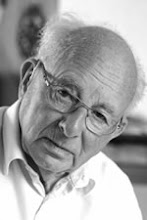
A farmer who built a castle hidden behind a stack of straw bales has lost a High Court bid to save it from being demolished.
Robert Fidler, of Salfords, Surrey, built the home - complete with turrets - without planning permission.
He kept it hidden until August 2006 but was ordered to tear it down by Reigate and Banstead Borough Council in 2008.
Mr Fidler appealed on the basis that his house had stood for four years without anyone objecting to it.
When Mr Fidler removed the bales he believed the structure would no longer be subject to planning enforcement because of a legal loophole.
Immunity rule
But in March 2007 the borough council issued an enforcement notice, which was upheld by a Government planning inspector in May 2008.
The inspector ruled that the removal of the straw bales constituted part of the building works and the four-year immunity rule would not apply.
The High Court was asked to decide whether the removal of the straw bales and tarpaulin was, in the eyes of the law, part of the building operation.
Deputy High Court judge Sir Thayne Forbes said: "In my view, the inspector's findings of fact make it abundantly clear that the erection/removal of the straw bales was an integral - indeed an essential - fundamentally related part of the building operations that were intended to deceive the local planning authority and to achieve by deception lawful status for a dwelling built in breach of planning control."
The judge said Mr Fidler had used two grain silos to form two turrets at the corners of his house. There was also "a stain-glass lantern feature" over a central hall, or gallery.
The property includes a kitchen, living room, study, shower room and toilet and separate WC.
On the first floor, there are four bedrooms and another room still being fitted as a bathroom.
"He stated that he knew he had to deceive the council of its existence until a period of four years from substantial completion and occupation had occurred as they would not grant planning permission for its construction.
"I accept that the act of concealment does not in itself provide a legitimate basis for the council to succeed, as hiding something does not take away lawful rights that may accrue due to the passage of time."
He added: "From his own evidence and submissions it was always his intention to remove the bales once he thought that lawfulness had been secured."
After the hearing Mr Fidler's solicitor, Pritpal Singh Swarn, said an appeal was being considered.
He said: "Mr Fidler is obviously disappointed and will almost certainly want to appeal bearing in mind what he stands to lose, which is the house that he has built.
"The judge appears to have left open the big question - when is a building substantially complete?
"It is necessary for the courts to draw the line as to what constitutes a completed development."
"He stated that he knew he had to deceive the council of its existence until a period of four years from substantial completion and occupation had occurred as they would not grant planning permission for its construction.
"I accept that the act of concealment does not in itself provide a legitimate basis for the council to succeed, as hiding something does not take away lawful rights that may accrue due to the passage of time."
He added: "From his own evidence and submissions it was always his intention to remove the bales once he thought that lawfulness had been secured."
After the hearing Mr Fidler's solicitor, Pritpal Singh Swarn, said an appeal was being considered.
He said: "Mr Fidler is obviously disappointed and will almost certainly want to appeal bearing in mind what he stands to lose, which is the house that he has built.
"The judge appears to have left open the big question - when is a building substantially complete?
"It is necessary for the courts to draw the line as to what constitutes a completed development."

Appeal planned
On the south side of the house there is a gravelled forecourt, and to the north and north-western corner a new patio and conservatory.
The judge said: "Mr Fidler made it quite clear that the construction of his house was undertaken in a clandestine fashion, using a shield of straw bales around it and tarpaulins or plastic sheeting over the top in order to hide its presence during construction.
"He stated that he knew he had to deceive the council of its existence until a period of four years from substantial completion and occupation had occurred as they would not grant planning permission for its construction.
"I accept that the act of concealment does not in itself provide a legitimate basis for the council to succeed, as hiding something does not take away lawful rights that may accrue due to the passage of time."
He added: "From his own evidence and submissions it was always his intention to remove the bales once he thought that lawfulness had been secured."
After the hearing Mr Fidler's solicitor, Pritpal Singh Swarn, said an appeal was being considered.
He said: "Mr Fidler is obviously disappointed and will almost certainly want to appeal bearing in mind what he stands to lose, which is the house that he has built.
"The judge appears to have left open the big question - when is a building substantially complete?
"It is necessary for the courts to draw the line as to what constitutes a completed development."
Sounds like there will be a wrestling match going on for some time with this one. However we all know that the only person who can take down Giant Haystacks is Big Daddy..... I should be on TV !
Easy... Easy....
Mr J



